Related Research Articles

The Pulitzer Prize is an award administered by Columbia University for achievements in newspaper, magazine, online journalism, literature, and musical composition within the United States. It was established in 1917 by provisions in the will of Joseph Pulitzer, who had made his fortune as a newspaper publisher. As of 2023, prizes are awarded annually in twenty-three categories. In twenty-two of the categories, each winner receives a certificate and a US$15,000 cash award. The winner in the public service category is awarded a gold medal.
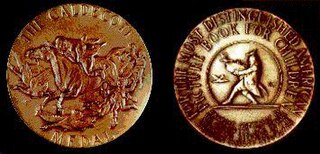
The Randolph Caldecott Medal, frequently shortened to just the Caldecott, annually recognizes the preceding year's "most distinguished American picture book for children". It is awarded to the illustrator by the Association for Library Service to Children (ALSC), a division of the American Library Association (ALA). The Caldecott and Newbery Medals are considered the most prestigious American children's book awards. Beside the Caldecott Medal, the committee awards a variable number of citations to runners-up they deem worthy, called the Caldecott Honor or Caldecott Honor Books.

Samuel Eliot Morison was an American historian noted for his works of maritime history and American history that were both authoritative and popular. He received his Ph.D. from Harvard University in 1912, and taught history at the university for 40 years. He won Pulitzer Prizes for Admiral of the Ocean Sea (1942), a biography of Christopher Columbus, and John Paul Jones: A Sailor's Biography (1959). In 1942, he was commissioned to write a history of United States naval operations in World War II, which was published in 15 volumes between 1947 and 1962. Morison wrote the popular Oxford History of the American People (1965), and co-authored the classic textbook The Growth of the American Republic (1930) with Henry Steele Commager.

Gordon Russell Sullivan is a retired United States Army general, who served as the 32nd Chief of Staff of the Army and as a member of the Joint Chiefs of Staff. Sullivan also served as acting Secretary of the Army.

Lawrence Rush "Rick" Atkinson IV is an American author, most recently of The British Are Coming: The War for America, Lexington to Princeton, 1775–1777, the first volume in the Revolution Trilogy. He has won Pulitzer Prizes in history and journalism.

Allan Jay Lichtman is an American historian. He has taught at American University in Washington, D.C. since 1973.
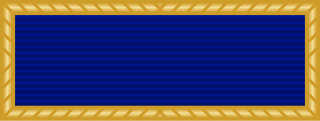
The Presidential Unit Citation (PUC), originally called the Distinguished Unit Citation, is awarded to units of the uniformed services of the United States, and those of allied countries, for extraordinary heroism in action against an armed enemy on or after 7 December 1941. The unit must display such gallantry, determination, and esprit de corps in accomplishing its mission under extremely difficult and hazardous conditions so as to set it apart from and above other units participating in the same campaign.
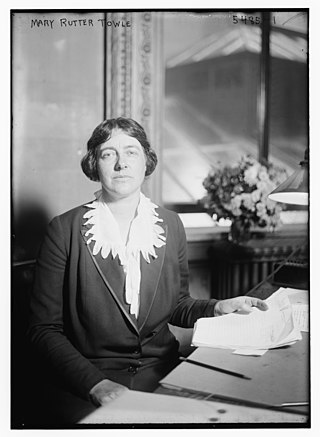
An assistant United States attorney (AUSA) is an official career civil service position in the U.S. Department of Justice composed of lawyers working under the U.S. Attorney of each U.S. federal judicial district. They represent the federal government of the United States in civil and appellate litigation and in federal criminal prosecutions. Assistant U.S. attorneys working in their office's criminal section are often called federal prosecutors.

Robert M. Citino is an American military historian and the Samuel Zemurray Stone Senior Historian at the National WWII Museum. He is a leading authority on modern German military history, with an emphasis on World War II and the German influence upon modern operational doctrine.
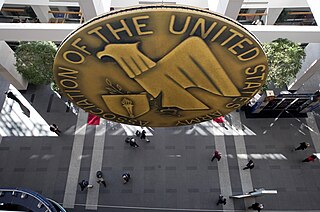
The Association of the United States Army (AUSA) is a private, non-profit organization that serves as the professional association of the United States Army. Founded in 1950, it has 121 chapters worldwide. Membership is open to everyone, not just Army personnel, nor is membership mandatory for soldiers. The organization publishes ARMY Magazine and the Green Book. The current president is retired Army General Robert Brooks Brown.
The Ritchie Boys were a special collection of soldiers, with sizable numbers of German-Austrian recruits, of the U.S. Military Intelligence Service officers and enlisted men of World War II who were used primarily for interrogation of prisoners on the front lines and counter-intelligence in Europe because of their knowledge of the German language and culture. Trained at secret Camp Ritchie in Washington County, Maryland, many of the total 22,000 service men and women were German-speaking immigrants to the United States, often Jews, who fled Nazi persecution. In addition to interrogation and counter-intelligence they were also trained in psychological warfare in order to study and demoralize the enemy, and served as prosecutors and translators in the Nuremberg trials.

The Pritzker Military Museum & Library is a non-profit museum and a research library for the study of military history on Michigan Avenue in Chicago, Illinois. The institution was founded in 2003, and its specialist collections include material relating to Winston Churchill and war-related sheet music.
Carlo D'Este was an American military historian and biographer, author of several books, especially on World War II. He was a decorated U.S. Army lieutenant colonel. In 2011, he was awarded the Pritzker Literature Award for Lifetime Achievement in Military Writing.

James D. Hornfischer was an American literary agent, author, and naval historian.
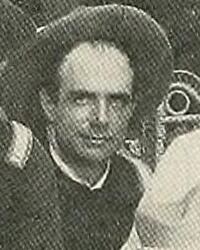
John Rodgers Meigs Taylor was a captain of the 14th Infantry Regiment of the United States Army. He was placed in charge of what became known as the Philippine Insurgent Records. That is, the collection of documents seized from Philippine revolutionaries during the Philippine–American War. Taylor later served as military attaché at the U.S. embassy in Constantinople, Turkey from 1911 to 1914 and retired from the Army on 9 July 1918 as a colonel.
Lewis Stone "Bob" Sorley III is an American intelligence analyst and military historian. His books about the U.S. war in Vietnam, in which he served as an officer, have been highly influential in government circles.
Spencer C. Tucker is a Fulbright scholar, retired university professor, and author of works on military history. He taught history at Texas Christian University for 30 years and held the John Biggs Chair of Military History at the Virginia Military Institute for six years.

Erika Lee is the inaugural Bae Family Professor of History at Harvard University, a position she began in July 2023. Previously, she was the Rudolph J. Vecoli Chair and Director of the Immigration History Research Center at the University of Minnesota and an award-winning non-fiction writer.
Geoffrey P. Megargee was an American historian and author who specialized in World War II military history and the history of the Holocaust. He served as the project director and editor-in-chief for the Encyclopedia of Camps and Ghettos, 1933–1945 produced by the United States Holocaust Memorial Museum. Megargee's work on the German High Command won the 2001 Distinguished Book Award from the Society for Military History.

Hildegard Binder Johnson was a German-American geographer known for her research into the German diaspora and for her work in historical geography on the midwestern United States. She founded the geography department at Macalester College and was heavily involved in geographical research in the state of Minnesota. Serving on multiple state government committees and positions in various academic societies, she was given a number of awards for her geography research, teaching activities, and environmentalism.
References
- ↑ ISSN 2577-1337; OCLC 1037946714 JSTOR
- 1 2 "Awards Announced for Excellence in U.S. Army History Writing – The Campaign for the National Museum of the United States Army". 17 June 2021.
- ↑ "AUSA Book Author Wins Distinguished Writing Award". AUSA. August 6, 2020.
- ↑ "Recent News".
- ↑ "Table of Contents". Parameters. 46 (4): 1–3. 2017. ProQuest 1879964279.
- ↑ Yockelson, Mitchell (2017). "General John J. Pershing and His Quest to Form the American First Army". On Point. 23 (1): 36–43. JSTOR 26295931.
- ↑ Seelinger, Matthew (21 June 2021). "2020 AHF Writing Awards". STLtoday.com.
- ↑ https://www.smh-hq.org/docs/HQG/GazetteSU20.pdf [ bare URL PDF ]
- ↑ Hill, Lauren (June 22, 2020). "Alumnus Dr. Michael Lynch wins award for US Army history writing".
- ↑ "University Press of Kentucky Receives Army Historical Foundation Distinguished Writing Award". UKNow. June 18, 2020.